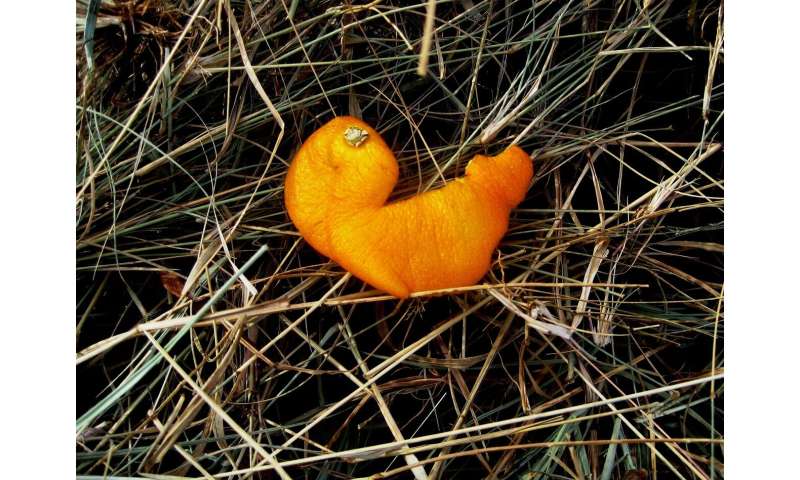
Waste from the citrus industry can provide biogas and valuable products for a range of industries. This has been shown by Lukitawesa, who recently defended his doctoral thesis at the Department of Resource Recovery and Building Technology at the University of Borås.
Climate change has increased the need for resource recycling and a circular economy. What to do with waste is one such challenge; more environmentally friendly alternatives are needed when it comes to recycling and producing materials and energy from things humans discard. This is the starting point of Lukitawesa's doctoral thesisMethane and Volatile Fatty Acid Production from Toxic Substrates,which focuses on waste from citrus fruits.
"In my home town of Yogyakarta in Indonesia alone, the amount of waste in the Gemah Ripah Fruits and Vegetables Wholesale Market is between one and two tons—every day. From a single market. So you can imagine how much there is globally," says Lukitawesa, who has the aim of contributing to improvements.
He points out that the entire industry is a significant environmental problem.
"The citrus industry creates so much waste that it corresponds to between 40 and 60 percent of the total citrus mass. Imagine how much waste there is when the world's total citrus production is 132 million tons of fruit per year. Therefore, it is extremely important to recycle what is thrown away."
Anaerobic digestion and valuable fatty acids
Lukitawesa's research aims to develop methods for how citrus waste can be made into methane/biogas and building block chemical for biocomposite of plastic. This is a major challenge, as the waste contains toxic citrus peel oil and thus becomes difficult to use in anaerobic (non-oxygen demanding) digestion. However, the study shows that it is, in fact, possible.
Toxic organic waste such as fruit waste has traditionally been disposed of in landfills. But anaerobic digestion can be used to produce biogas or fatty acids—all for the sake of the environment and the climate. The solution that Lukitawesa highlights is anaerobic digestion in two steps, using a membrane.
In the first part of the doctoral thesis, biogas production from citrus waste was studied. This is something that can reduce environmental destruction and increase the production of renewable energy.
"Afterwards, we realized that even the direct product of the first stage of digestion, fatty acids, is valuable," says Lukitawesa.
The second half of his doctoral thesis deals with how bioreactors can produce volatile fatty acids when loaded with a large amount of citrus waste. Previous research in the field has focused primarily on loading a smaller amount of citrus waste.
Volatile fatty acids today have a wide range of uses within industry and are included in a wide variety of products: from medicines and food to paints and plastics. But the volatile fatty acids that are normally used industrially are fossil-based; here, we have a climate-friendly alternative.
Important to take care of the planet—for the future
Lukitawesa says he wants to do more research on how citrus waste can produce volatile fatty acids. The doctoral thesis has raised new questions and has laid the foundation for new important studies.
"Ideas and thoughts about how the process can be improved still pop up in my head. I also believe that my research may be useful within the livestock industry in order to reduce livestock production of methane, a greenhouse gas that contributes to global warming," he says, continuing: "Livestock convert the food they eat into fatty acids in their stomachs and microorganisms then convert some of these fatty acids into methane. Citrus waste could be given as a dietary supplement to animals in order to inhibit these microorganisms."
More studies are needed to develop more effective methods in the field; Lukitawesa is driven by his significant engagement with the subject.
"As researchers, we can, through new findings, contribute to solving the problem of climate change. The main purpose of the research is to create better living conditions for humanity. We have to take care of our planet. Otherwise, we have no future," he says.
Explore further
Provided by University of Borås
Citation: Creating energy and valuable products from fruit waste (2020, November 27) retrieved 27 November 2020 from https://ift.tt/37e16Rp
This document is subject to copyright. Apart from any fair dealing for the purpose of private study or research, no part may be reproduced without the written permission. The content is provided for information purposes only.
"fruit" - Google News
November 28, 2020 at 12:30AM
https://ift.tt/37e16Rp
Creating energy and valuable products from fruit waste - Phys.org
"fruit" - Google News
https://ift.tt/2pWUrc9
https://ift.tt/3aVawBg
Bagikan Berita Ini














0 Response to "Creating energy and valuable products from fruit waste - Phys.org"
Post a Comment